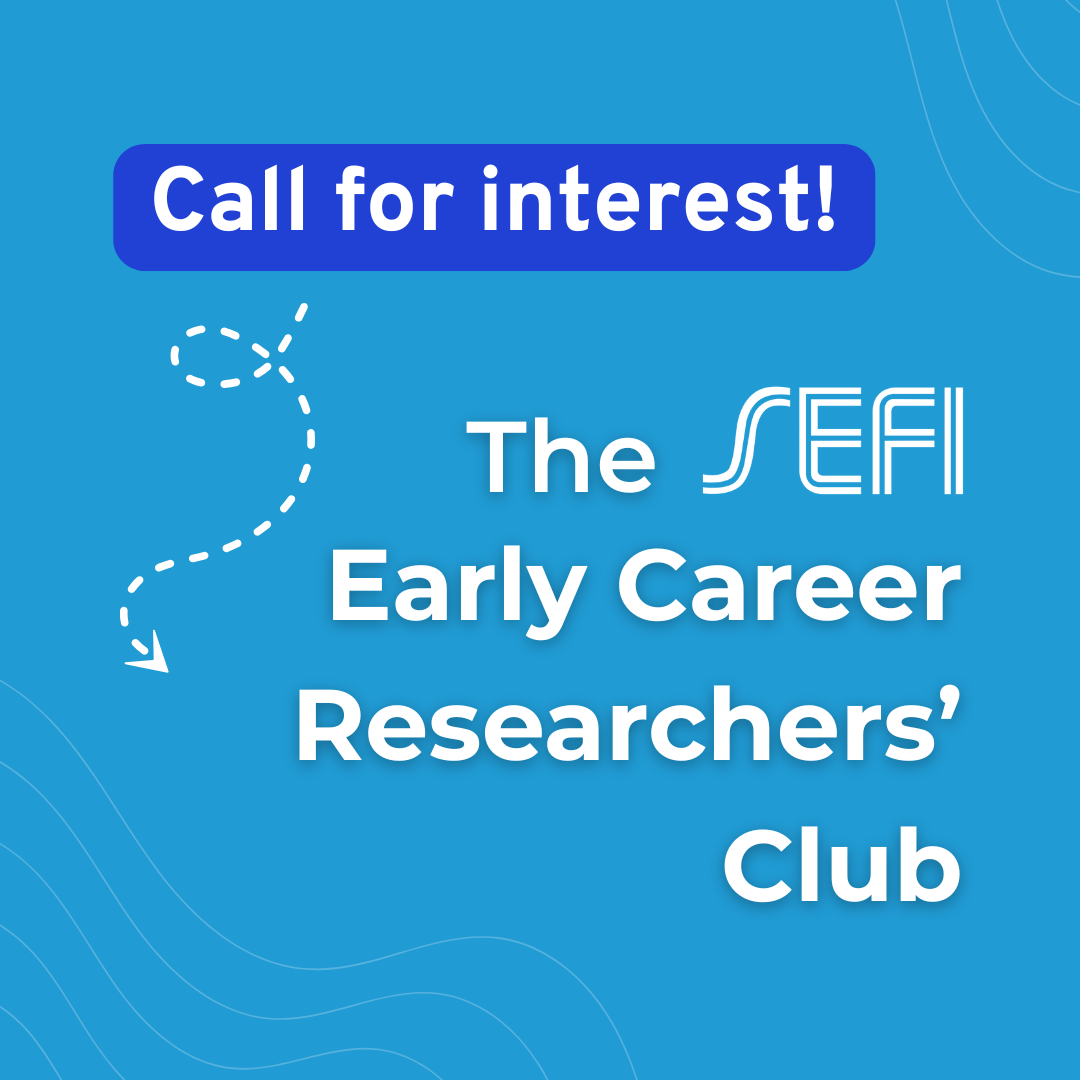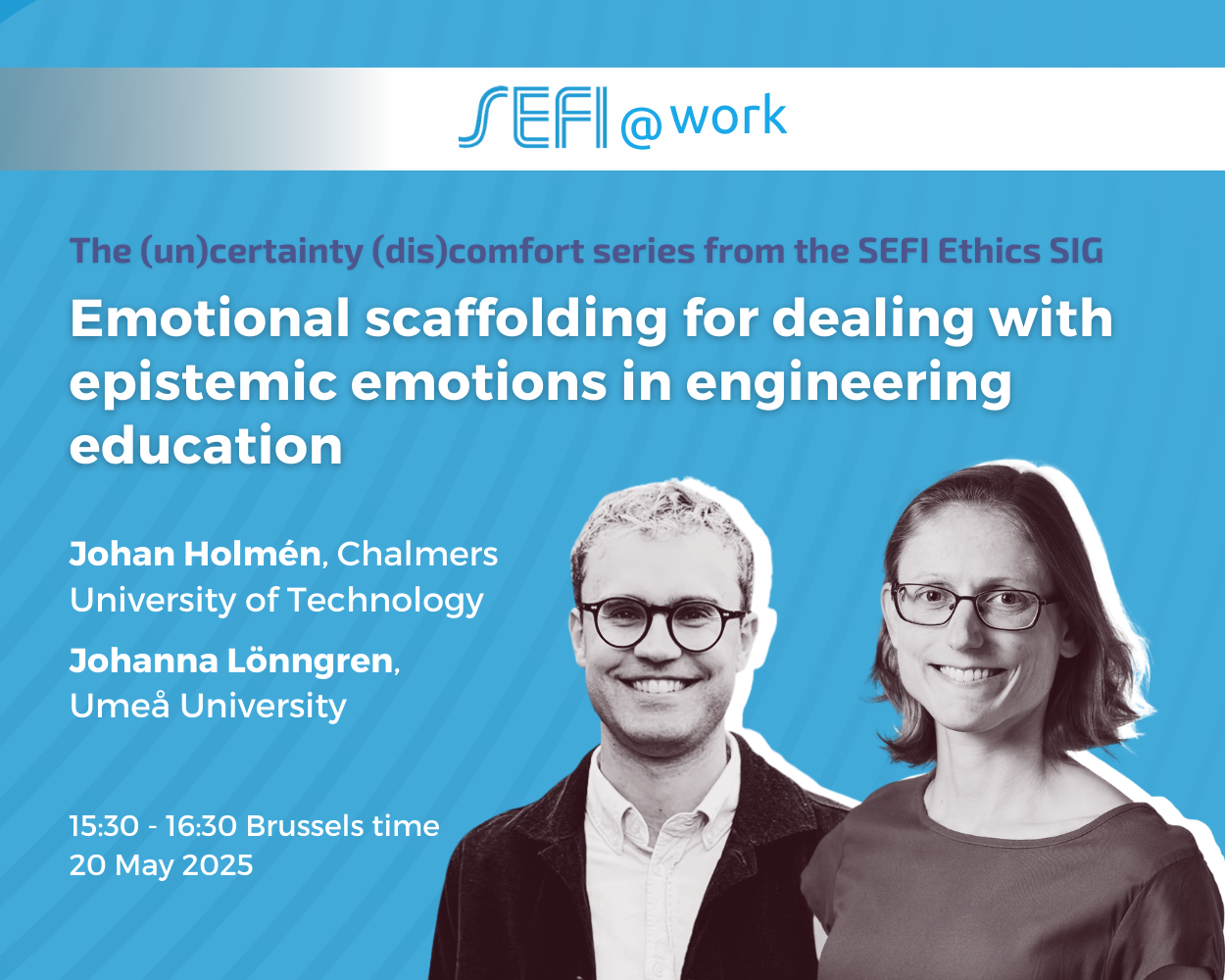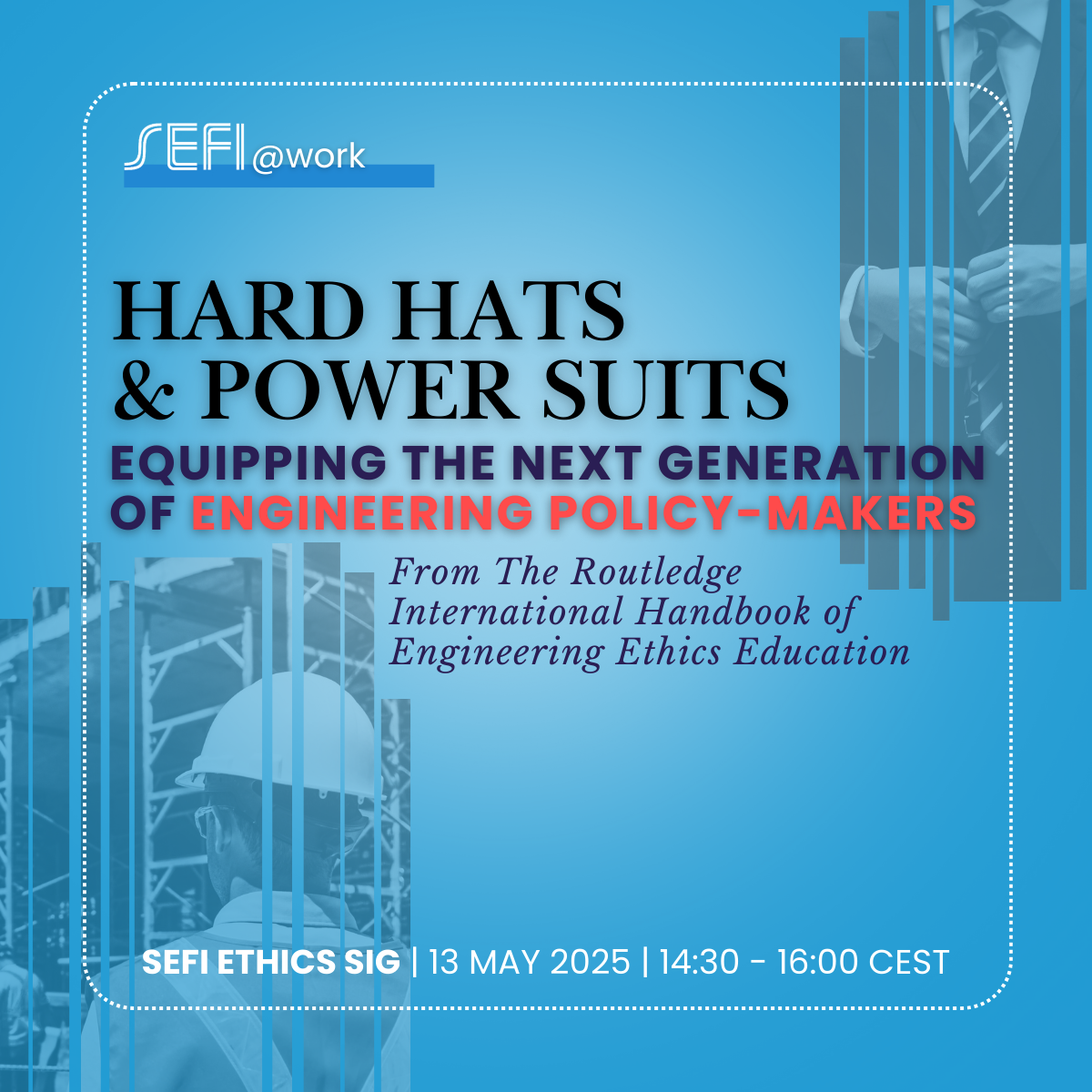UPDATE: We sincerely thank all participants for their interest in the 2025/26 intake. The survey…
Meeting the Challenge of Engineering Ethics Education:
The SEFI Ethics SIG Workshop, 2019
On 12-13nd of December 2019, the SEFI SIG Engineering Ethics Education organized its first workshop, under the organization of Gunter Bombaerts (TU Eindhoven). The aim of the event was to explore in a series of workshops some of the challenges faces by engineering ethics educators, to share best practices and brainstorm future strategies for action. Educators from different countries – ranging from Australia, Germany, The Netherlands, Switzerland, Sweden, Spain, Ireland, UK and US – got together to work together through these issues, with a strong online participation.
Day 1
 The kick-off for the event was given by the organizing team of TU Eindhoven, who welcomed everyone and started the discussion by exploring challenges and prejudices encountered by participants in their teaching ethics in Engineering context. Some of the more pressing issues identified during this general discussion centred on student reception and the attitude of Engineering colleagues, who tend to regard ethics as “soft”, personal and subjective. Participants raised questions whether ethics education needs to be more experiential, by taking into consideration the type of problems faced by engineers in their practice and the sort of professional identity we aim to help develop, as well as how to include in practice a broader conception of engineering.
The kick-off for the event was given by the organizing team of TU Eindhoven, who welcomed everyone and started the discussion by exploring challenges and prejudices encountered by participants in their teaching ethics in Engineering context. Some of the more pressing issues identified during this general discussion centred on student reception and the attitude of Engineering colleagues, who tend to regard ethics as “soft”, personal and subjective. Participants raised questions whether ethics education needs to be more experiential, by taking into consideration the type of problems faced by engineers in their practice and the sort of professional identity we aim to help develop, as well as how to include in practice a broader conception of engineering.
For the first workshop, Gunter Bombaerts and Mandi Astola (TU Eindhoven) had the workshop participants experience a challenge-based learning (CBL) approach. Small groups developed – through active learning – their own CBL approach. After that, some CBL issues were discussed: teacher workload is the same as other project based approaches; because of the alignment with the assignment, students prepare well in the flipped classroom approach; and CBL means being more “in control” for a teacher, addressing what is often a teacher fear.
This session was followed by four brief presentations on research projects on engineering ethics education, taking place in the Netherlands, Ireland and U.S. Diana Adela Martin (TU Dublin) presented her project carried in cooperation with the national accreditation body Engineers Ireland, which examines the implementation and evaluation of Engineering ethics education in Ireland. Janna van Grunsven, Lavinia Marin, Taylor Stone (TU Delft) and Tijn Borghuis (TU Eindhoven) presented two post-doctoral research projects on best practices for engineering ethics education, funded by the 4TU Center for Engineering Education. The SURF project aims to develop materials for ethics education for engineers while COMET is a two-year which is focused on the future of engineering ethics education at TU Delft, aiming to identify and propose best practices for ethics education going forward. Tom Staley and Diana Bairaktarova (Virginia Tech) – participating online – described their phenomenographic research project about cultivating cultures of STEM education. The project aims to explore the ethical awareness and view on global issues of Engineering students and lecturers. International collaboration for implementing the research study in other institutions was discussed.
The second workshop of the day was offered by Giovanni Frigo, who was joined online by Rafaela Hillerbrand (Karlsruhe Institute of Technology). They first presented the institutional initiative Academy for Responsible Research, Teaching and Innovation, whose aim is to increase ethical expertise and competence in KIT Engineering students, followed by a presentation of a virtue-based approach to Engineering Ethics Education. The workshop invited participants to reflect on how they envision the good engineer, in order to trace an educational route for supporting students to become virtuous.
Afterwards, the participants were guided on a visit of the Innovation Space of TU Eindhoven, whose design encourages the development of collaborative innovative projects.
The last session of the day provided the TU Delft team with an opportunity to gather the insights of a diverse group of educators regarding the challenges and successes they experience teaching ethics to engineering and design students. Janna van Grunsven, Pieter de Vries, Lavinia Marin and Taylor Stone conducted a 1.5 hour long focus group in which participants were invited to share their knowledge and insights regarding effective teaching exercises, how “success” is defined in the context of teaching engineering ethics, and more broadly how they conceptualize the role and scope of ethics in engineering practice. The conclusions will be shared with the SEFI SIG and incorporated in a paper on the challenge of finding the right balance teaching ethical skills and ethical knowledge.
Day 2
The second day of the meeting of the SEFI SIG Engineering Ethics Education incorporated three sessions. The first workshop was led by Ester Giménez Carbó (Universitat Politècnica de València), and explored issues regarding the assessment of students and evaluation of quality of ethics courses. The discussions revealed that there is no consensus on what an engineer should be “taught” in the area of Engineering Ethics. In order to be able to assess the students, it is important to know which learning goals we intend to introduce with our teaching. It is equally important to study and validate ways to assess these learning goals.
Ester’s conclusion built towards the next workshop session offered by Roland Tormey (École polytechnique fédérale de Lausanne), that grounded the practices shared during these two days in the need for an evidence-informed (re)design of engineering ethics teaching. There is a growing emphasis on the idea that our teaching approaches in engineering education should be informed by evidence as to ‘what works’. But, as a recent review of evidence found, “…ethical interventions within engineering continue to vary in size, scope, and context. Nonetheless, the relative merit of these varying techniques, including strategies for evaluating and comparing student outcomes across these interventions, remains largely unknown. This is partly due to the limited body of empirical work in the domain and partly due to the multiplicity of ethics-related learning goals vying for attention among engineering educators” (Hess and Fore, 2018, p 552-3). The focus of this workshop was on (a) exploring what is meant by ‘evidence’ in an engineering/STEM education context and (b) what psychometric tools exist for evaluating and comparing student outcomes across these interventions.
 Some key conclusions of the workshop were (i) ethics educators must engage with evidence regarding learning (not just learning theories), (ii) the implications of the research evidence should be applied carefully to our practice taking into account the overall weight of evidence as well as particular circumstances and learning goals (i.e. practice should be informed by this research but not uncritically based on it), (iii) gathering good evidence in real-world settings is extremely challenging, (iv) a number of psychometric tools which might facilitate evaluation and comparison exist, (v) many are focused on moral reasoning and judgement (e.g DIT, ESIT) while fewer seem to address other important ethics goals (such as ethical sensitivity/awareness, and ethical courage/confidence or commitment), and (vi) there is a need for ethics specialists to collaborate with psychometric specialists with a view to developing appropriate assessment instruments that would better reflect the full range of ethic learning goals.
Some key conclusions of the workshop were (i) ethics educators must engage with evidence regarding learning (not just learning theories), (ii) the implications of the research evidence should be applied carefully to our practice taking into account the overall weight of evidence as well as particular circumstances and learning goals (i.e. practice should be informed by this research but not uncritically based on it), (iii) gathering good evidence in real-world settings is extremely challenging, (iv) a number of psychometric tools which might facilitate evaluation and comparison exist, (v) many are focused on moral reasoning and judgement (e.g DIT, ESIT) while fewer seem to address other important ethics goals (such as ethical sensitivity/awareness, and ethical courage/confidence or commitment), and (vi) there is a need for ethics specialists to collaborate with psychometric specialists with a view to developing appropriate assessment instruments that would better reflect the full range of ethic learning goals.
The SEFI Ethics in Engineering Education working group decided to try to organise a similar workshop on a regular basis, next to the SEFI annual meeting workgroup sessions. The workshop will be announced via this newsletter and the regular SEFI channels.
References:
Hess, J.L. and Fore, G. (2018) A systematic literature review of US Engineering Ethics Interventions, Science and Engineering Ethics, 24: 551-583.


